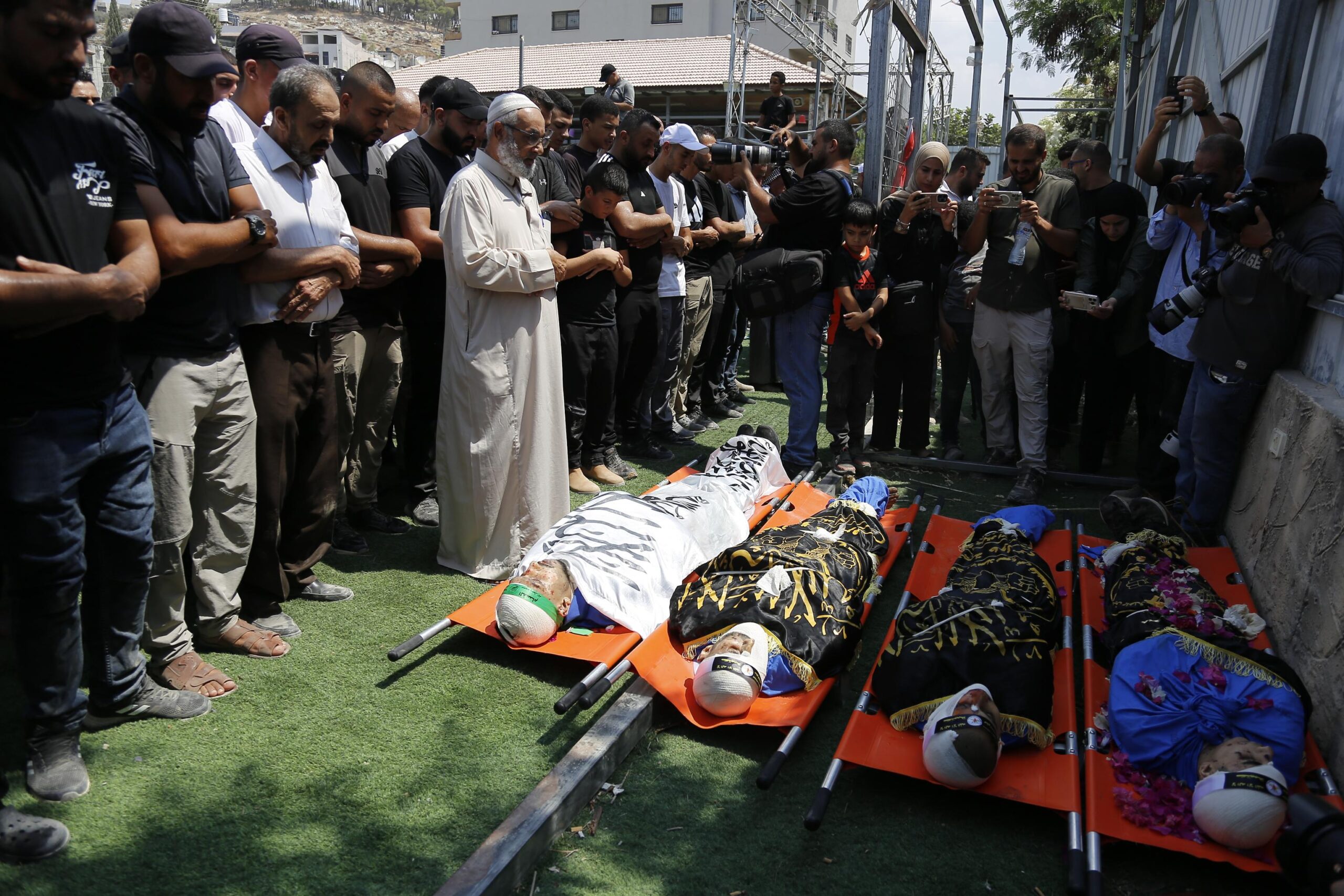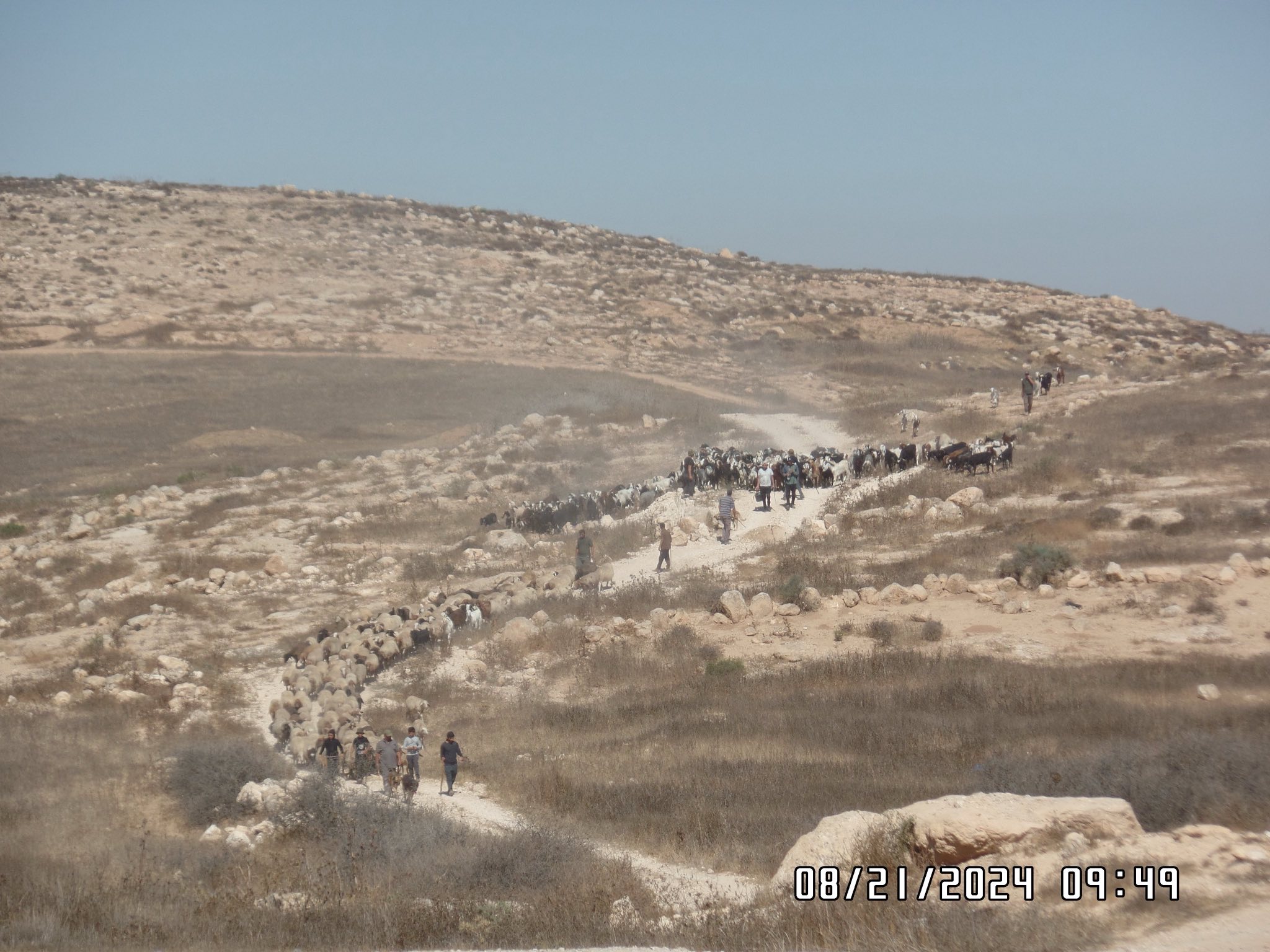Author: ISM Media
-
Another Crime of the Israeli Occupation: Five Killed in Nur Shams Camp
28 August 2024 | International Solidarity Movement | Tulkarm Camp *Nur Shams Camp – Tulkarm – West Bank* *27-Aug-2024* *By Diana Khwaelid* On the evening of Monday 26, Israeli occupying forces carried out an aerial bombardment through an Israeli drone strike on one of the houses in the Nur Shams refugee camp, northeast of the…
-
Call for Volunteers
| International Solidarity Movement | West Bank At the invitation of Palestinian communities, the International Solidarity Movement (ISM) is issuing an urgent call for volunteers to join us. While this is a period when Palestinian families get together in the field and celebrate their connection to the land, it is also a time of increased…
-
Zanuta: A Story of Return
26 August 2024 | International Solidarity Movement | Zanuta On Wednesday, August 21, following a long overdue court order, the families of Zanuta, in the South of the West Bank, returned to their village for the first time in 10 months after being forcibly displaced, determined to rebuild their home from the rubble of their…


